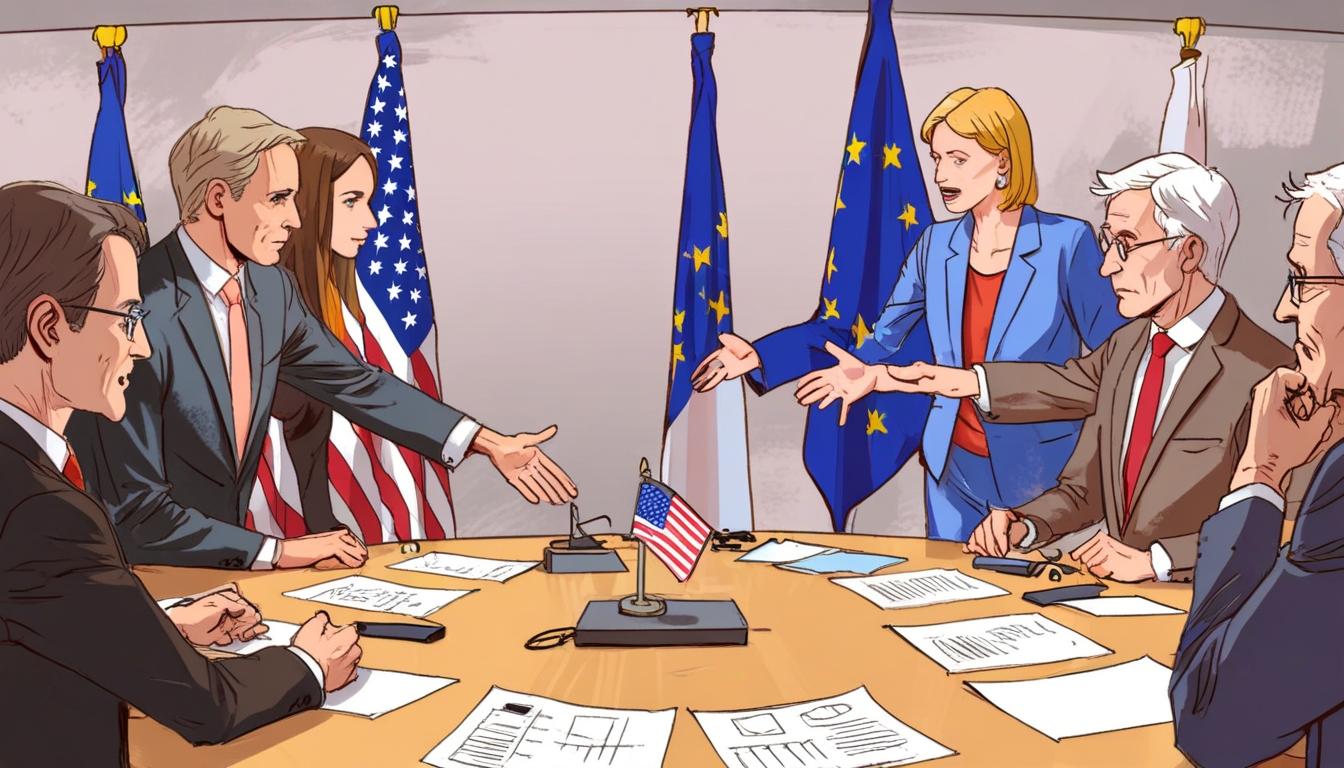After three weeks of unproductive negotiations concerning the removal of US trade tariffs, the European Union is intensifying preparations for potential retaliatory measures, according to the Financial Times.
The tensions arise from US President Donald Trump's implementation of so-called "reciprocal" tariffs on most global trading partners. On April 2, the US imposed a 20% tariff on EU imports, subsequently reducing this rate to 10% a week later while granting trading partners 90 days to negotiate concessions. The US had previously applied sectoral tariffs of 25% specifically on steel, aluminium, and cars from the EU, which remain in effect. Despite ongoing discussions, the US has not provided a clear indication of what actions would convince the administration to lift these tariffs permanently or prevent the resurgence of "reciprocal" tariffs.
In response, the European Commission, which manages EU trade policy, is developing contingency plans for retaliation. Financial Times sources indicate member state ambassadors are being briefed to discuss the next steps for possible countermeasures. These discussions, which are set to exclude mobile phones for security reasons, will focus on considering a broader array of tariffs on a new list of US goods rather than services such as technology platforms. Currently, EU tariffs on approximately €21 billion worth of US goods—including Harley-Davidson motorcycles, poultry, and clothing—are on hold until July 14.
According to diplomats interviewed by the Financial Times, a comprehensive plan is expected to be presented ahead of the next trade ministers’ meeting scheduled for May 15. This briefing aims to balance the perspectives of more hawkish EU member states eager to impose retaliatory measures against those prioritising continued diplomatic negotiations.
Trade Commissioner Maroš Šefčovič and Economy Commissioner Valdis Dombrovskis have recently engaged in talks with US counterparts, including Commerce Secretary Howard Lutnick and Treasury Secretary Scott Bessent, respectively. However, Šefčovič reportedly signalled before the Easter break that full tariff removal remained unlikely and that the US stance on easing tariffs was uncertain.
The briefing will also encompass discussions on the impact of US budget cuts to the United States Agency for International Development (USAID) and the EU's introduction of a 15% minimum corporate tax rate, which has been met with criticism from Washington. A senior official noted that no immediate changes to this tax policy are anticipated.
Separately, in German political developments, the Financial Times reports on Chancellor-in-waiting Friedrich Merz of the Christian Democratic Union (CDU) pre-emptively announcing his proposed cabinet lineup in anticipation of an upcoming coalition agreement vote by the Social Democratic Party (SPD). The SPD’s membership vote, concluding this week after a two-week electronic ballot, is expected to endorse the government coalition, setting the stage for Merz’s chancellorship, likely formalised during the Bundestag vote scheduled for 6 May.
The coalition agreement, which includes a €500 billion infrastructure fund and assigns key ministries such as defence and finance to the SPD, follows the party's electoral setback in February. SPD co-leaders Lars Klingbeil and Saskia Esken face internal challenges, notably from the party’s youth wing, Jusos, which opposes the deal over immigration, social policy, and taxation concerns.
Should the SPD members reject the coalition agreement, the absence of a clear majority poses significant risks for Germany, Europe’s largest economy, which could result in the formation of a minority government with uncertain stability. Merz has ruled out forming a coalition with the far-right Alternative for Germany (AfD), which holds the second-largest number of parliamentary seats.
Other notable events include the participation of European Commission President Ursula von der Leyen and various leaders at the 2025 European People's Party Congress. The Financial Times also highlights ongoing challenges in Belgium’s justice system, issues concerning trade with Russia amidst sanctions, and the European Court’s recent ruling against Malta’s citizenship-for-investment scheme for violating EU law.
Source: Noah Wire Services
